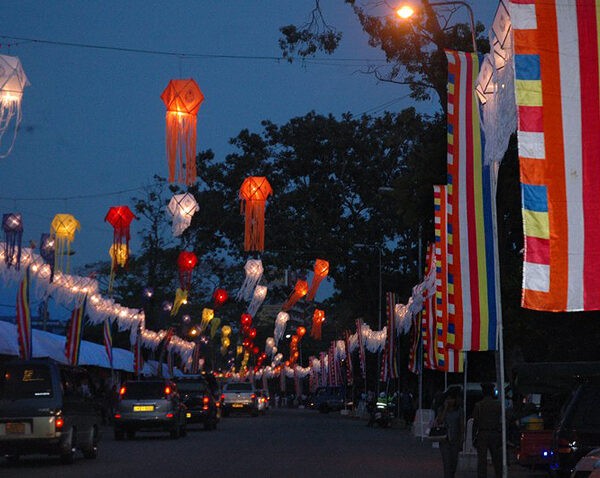Poson Festival

The Poson Festival, also known as Poson Poya, is a significant religious and cultural event celebrated in Sri Lanka. It commemorates the introduction of Buddhism to the country and the arrival of Arahat Mahinda, the son of Emperor Ashoka of India, who played a pivotal role in spreading Buddhism in Sri Lanka. The festival is observed on the full moon day of Poson in the Sinhalese lunar month of Poson (June), corresponding to June in the Gregorian calendar.
Key features and aspects of the Poson Festival:
- Historical Significance: The Poson Festival holds historical importance as it marks the formal introduction of Buddhism to Sri Lanka in the 3rd century BCE. Arahat Mahinda is said to have converted King Devanampiya Tissa and his people to Buddhism, thereby laying the foundation for the country’s strong Buddhist heritage.
- Religious Observances: The festival is primarily a religious occasion for Buddhists. Devotees visit temples, engage in acts of worship, and participate in various religious rituals to honor the teachings of Lord Buddha and the arrival of Arahat Mahinda.
- Anuradhapura: The ancient city of Anuradhapura, a UNESCO World Heritage site, is a focal point for the Poson Festival. Many Buddhists make pilgrimages to Anuradhapura during this time to visit important historical and religious sites associated with Buddhism.
- Illuminations: Similar to other Buddhist festivals in Sri Lanka, the Poson Festival is celebrated with the illumination of homes, streets, and public places using colorful lanterns and oil lamps. This practice symbolizes the spreading of light and wisdom.
- Dansalas (Free Food Stalls): Just like during other Buddhist festivals, devotees set up “dansalas” where they offer free food, drinks, and refreshments to the public as an act of generosity and kindness.
- Pilgrimages and Observances: Devotees often engage in pilgrimages, visit sacred sites, and observe religious precepts (sila) as a means of spiritual purification and reflection during the festival.
- Cultural Performances: The Poson Festival sometimes features traditional cultural performances, including traditional dance, music, and drama, which add to the festive atmosphere.
- Community and Family Bonding: The festival provides an opportunity for families and communities to come together, share meals, and participate in religious and cultural activities.
- Public Holiday: Poson is a public holiday in Sri Lanka, allowing people to fully engage in the festivities and religious observances.
- Educational and Outreach Activities: In addition to religious practices, the Poson Festival may also include educational programs, discussions, and seminars to promote awareness and understanding of Buddhism and its teachings.
The Poson Festival is a time of reverence, spiritual reflection, and cultural expression. It highlights the profound influence of Buddhism on Sri Lankan society and underscores the importance of compassion, wisdom, and ethical living in the lives of the people.


